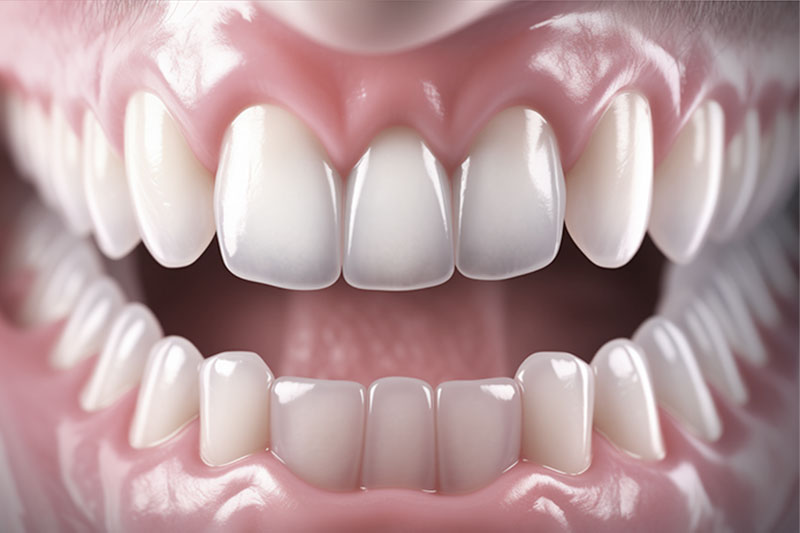
Have you ever noticed that your gums seem a little puffier than usual? It’s easy to dismiss swollen gums as just a minor nuisance, but what if they’re actually whispering secrets about your overall health? Swollen gums can be the red flag waving at you, signaling issues that go far beyond your oral cavity. From nutritional deficiencies to systemic conditions, your gums might just be the looking glass offering a glimpse into your body’s inner workings.
In this article, we’ll dive into the seven surprising revelations that your swollen gums may be hinting at about your health. Imagine your mouth as a garden – when tended with care, it flourishes, but neglect it, and weeds (in this case, inflammation) start to take over. By understanding the messages your gums are trying to convey, you can tend to your garden with precision, ensuring not just oral health, but also contributing to your overall wellbeing. So, let’s peel back the layers and uncover what your gums could be indicating about your health.
Poor Oral Hygiene: The Root of Gum Swelling?
First things first: are you giving your oral hygiene the attention it deserves? Swollen gums often raise a red flag about your brushing and flossing routine. Are you skimping on these daily rituals or perhaps being too aggressive? Both can lead to gum irritation and swelling. But that’s not all; poor oral hygiene can lead to plaque buildup, which is a sticky film of bacteria. If left unchecked, this can progress to gum disease, such as gingivitis or periodontitis, which doesn’t just threaten your teeth but can also have serious ramifications for your overall health.
Stress: Can It Really Affect Your Gums?
Ever considered that your high-stress lifestyle might be causing more than just sleepless nights and irritable mornings? Stress is like an unwelcome guest that affects every part of your body, including your gums. When you’re stressed, your body’s ability to fight off inflammation is compromised, which can lead to swollen gums. Additionally, stress can lead to clenching or grinding your teeth, putting extra pressure on your gums. Recognizing the signs of stress in your gums can be the prompt you need to seek relaxation techniques or professional help.
Nutritional Deficiencies: What Are Your Gums Trying to Tell You?
Did you know that your diet plays a pivotal role in the health of your gums? Swollen gums can sometimes be a telltale sign of nutritional deficiencies, particularly vitamins C and K. Vitamin C is crucial for gum health, and a deficiency can lead to scurvy, which has swollen gums as a symptom. Similarly, vitamin K is essential for blood clotting, and without it, your gums may bleed easily. Are you getting enough of these nutrients in your diet, or is it time to consider a more balanced plate?
Dehydration and Your Dental Health
Are you drinking enough water throughout the day? Dehydration can lead to a dry mouth, which is a less hospitable environment for harmful bacteria to grow. Saliva is your mouth’s natural defense against these bacteria, and without it, you’re at an increased risk for gum swelling and other oral health issues. Make sure you’re sipping on water regularly to keep your gums hydrated and healthy.
Underlying Medical Conditions: A Glimpse Beyond the Gums
Sometimes, swollen gums are a symptom of something more complex happening in your body. Conditions like diabetes, heart disease, and rheumatoid arthritis can manifest symptoms in your mouth. For instance, people with diabetes are at a higher risk for gum disease due to a reduced ability to fight bacteria. If your swollen gums persist, it might be time to check in with your doctor to rule out or manage any underlying conditions.
Hormonal Changes: Riding the Waves
Hormones can play havoc with your body in myriad ways, and your gums are no exception. Women, in particular, may notice gum swelling during times of hormonal fluctuation, such as pregnancy, menstruation, or menopause. These hormonal tides can make your gums more sensitive and prone to swelling. Understanding these patterns can help you adapt your oral care routine to be more gentle during these times.
Medications: Side Effects You Might Not Have Considered
Last but not least, have you checked your medicine cabinet lately? Certain medications, including anticonvulsants, immunosuppressants, and even some blood pressure drugs, can cause gum swelling as a side effect. If you’ve started a new medication and notice changes in your gums, a chat with your healthcare provider could be in order to discuss potential alternatives or additional dental care to mitigate the effects.
Listening to Your Gums
Your gums have a lot to say about your health if you’re willing to listen. Swollen gums can be an indicator of various health issues, ranging from the need for better oral care to potential systemic diseases. By paying attention to these signs and maintaining good oral hygiene, you can ensure that your gums—and your overall health—remain in top condition.
Remember, your mouth is a mirror reflecting your body’s health. Keep the lines of communication open with regular dental checkups and by being attentive to what your gums are telling you. After all, a healthy smile is a gateway to a healthier you.
So, have you checked your gums lately? They might just be trying to get your attention.



